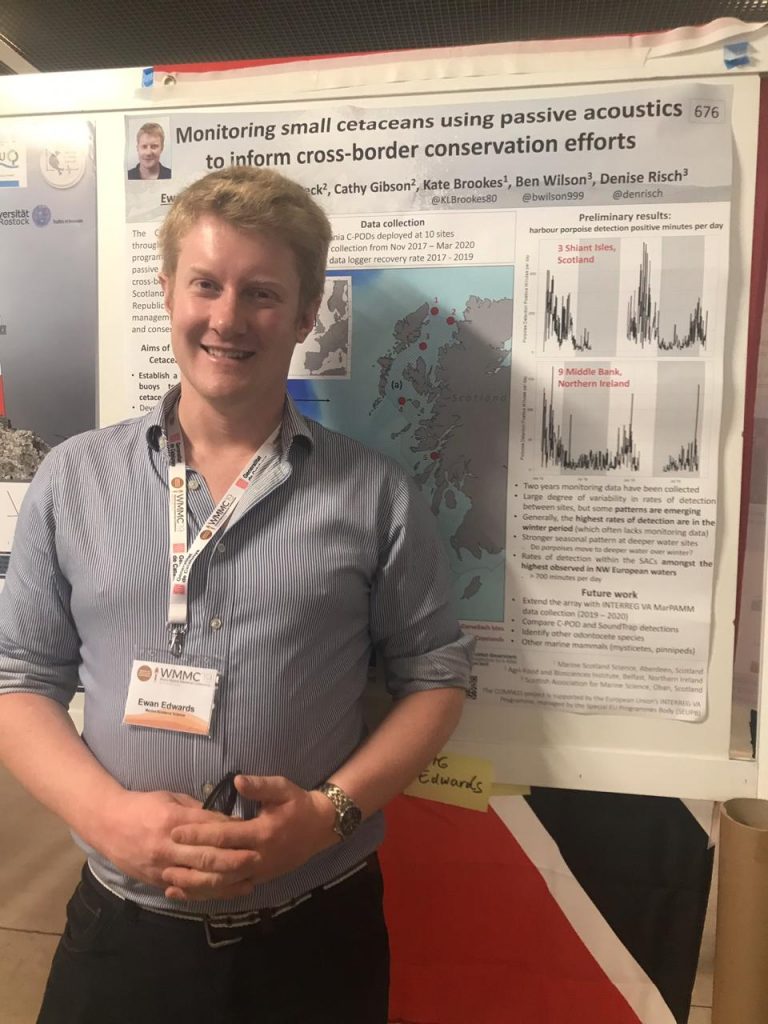The Society of Marine Mammalogy joined together with the European Cetacean Society (ECS) to co-host the World Marine Mammal Conference in Barcelona.

The meeting in December brought together top leaders in the field from every continent, including three scientists working on the COMPASS project: Ewan Edwards from Marine Science Scotland (MSS), Denise Risch and Ben Wilson of the Scottish Association for Marine Science (SAMS).
Ewan presented a well-attended poster on some preliminary results of the data collection in the cetaceans work package of COMPASS, specifically to illustrate some patterns observed in the detection rates of harbour porpoises at the ten monitoring stations. This generated a great deal of discussion with visitors to the poster and forged some useful links with people working on small cetacean passive acoustic monitoring both in Europe and further afield.
Denise, Ben and Ewan dispersed to try and cover as many relevant talks as possible. With over 2,500 attendees, up to five presentation sessions (each with 18 talks), and over 800 posters on display, it was impossible to see every interesting presentation. But a useful conference app made it easy to plan your schedule, and between talks there was always a mad dash between the conference rooms.
Many presentations were of relevance to the activities of not only the COMPASS project, but also its sister-projects MarPAMM and SeaMonitor, relating to the distribution and spatial protection of small whales, dolphins, porpoises and seals.
Some major themes included the threats faced by these species from climate change and underwater noise, and then what we as researchers and advisors can do to mitigate these threats and conserve these species which generate a huge amount of public interest.
The conference attracted marine mammal scientists, managers and policy makers from more than 60 countries to engage in interdisciplinary dialogue on the world’s most pressing marine science and conservation issues as they relate to these species. A gathering of interdisciplinary experts such as this enables discussion amongst marine mammal scientists and policy makers, enhancing collaboration and training the next generation of scientists and practitioners, and is a key opportunity to develop and maintain international partnerships and collaborations.
